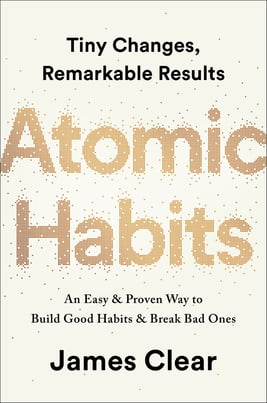STEPHEN FORD
CIO for Warfighting System Solutions
Can you please provide a little introduction about yourself
I am the CIO of WFSS, Inc., a federal contractor that provides world-class training, leader development, and operational support for military and civilian agencies. Our adaptive and innovative solutions help leaders build warfighting readiness and sustain deliberate transformation for large-scale combat operations.
I've been married for 18 years and have three daughters, ages 17, 12, & 10. Work-life balance is an important part of my life and professional success. With that, I practice meditation, enjoy distance running, and take the occasional weekend getaway with my wife and daughters.
What path have you taken to your current position?
I began this journey as an adolescent who graduated high school with a 1.8 GPA. We could frame our respective paths at any scale, but my transition from a below-average student to a tech leader has been anything but traditional.
In 2003, I enlisted in the U.S. Army because I needed a change. I didn't know exactly what I needed or where I was going, but I knew college was not the next step in my journey. In 2005, my unit deployed to Iraq in support of OIF III, exposing us to the best and worst of humanity. Those experiences opened my eyes to the importance of becoming an active participant in your own life. After we returned from Iraq in 2006, I married my longtime friend Ashley, and our first daughter was born the following year.
In 2010, I was accepted into the U.S. Army Warrant Officer Cohort as an Air and Missile Defense (AMD) Systems Integrator (MOS 140A). Over the next 13 years, Ashley and I welcomed two more daughters, Ashley completed her bachelor's degree and earned her teaching certification, and I completed both a bachelor's and master's degree. My military career taught me invaluable lessons about leadership, adaptability, and resilience—qualities that I carry into my current role.
Since retiring from the military in 2023, I've worked as a high school teacher and athletic coach, part-time training analyst for WFSS, federal civilian for the Joint C-sUAS University, and now I've returned to WFSS as the company's first CIO.
Today, I’m honored to lead WFSS’ IT initiatives, focusing on innovation, people, and delivering world-class solutions. The journey has been untraditional, but every step has prepared me for the challenges and opportunities ahead.
Has it always been your vision to reach the position you’re at? Was your current role part of your vision to become a tech leader?
My vision has always been to be the best in my field by continuously learning, challenging my limits, and building high-performing teams. While I didn’t always anticipate becoming a tech leader, my experiences in the military and my passion for technology naturally led me here.
As I’ve grown, so has my vision, and today, I’m driven by the goal of not just personal success, but also fostering innovation and helping others excel. I believe we are limited only by our drive and imagination.
Have you had a role model or mentor that has helped you on your journey? (If you feel comfortable, please share their name and how they helped you)
Of course. Every successful person is shaped by the people in their life, either directly or indirectly. Throughout my life, my role models and mentors taught me to strive for excellence, embrace imperfection, focus on the bigger picture, and treat people with respect. Here are a few principles I live by:
1) No job, relationship, or situation is perfect. Weigh the pros and cons of each opportunity to determine which one is right for you.
2) We can control two things in this life: Our word and our work ethic.
3) Be great at what you're responsible for.
4) Keep moving forward.
5) Make it a good day.
How do you see the role of the technology leader evolving over the next 5 years?
Tech leaders must stay abreast of emerging technologies like AI, cybersecurity innovations, and data privacy regulations, while also keeping an eye on global trends such as the rise of remote work and digital transformation.
Additionally, they need to build people-centric, tech-enabled teams that are agile and postured to anticipate threats, leverage data, and seize opportunities to drive sustainable growth.
What skills do you think leaders of the future will need in order to thrive?
Leaders of the future must be agile to respond quickly to change, adaptive to thrive in unpredictable environments, cooperative to build strong, interdisciplinary teams, and forward-thinking to anticipate and seize emerging opportunities.
These qualities will help them navigate complexity and drive innovation in an evolving landscape.
Is there anything in particular that you would still like to achieve in your career or what is the next step on your journey?
The next step on my journey is to modernize WFSS by achieving CMMC II compliance, scaling our IT department, improving corporate communication strategies, and leading the implementation of advanced technologies.
WFSS will be synonymous with world-class training and warfighting readiness.
What advice would you give to aspiring technology leaders who are just starting their careers?
Never stop learning. Stay curious and constantly seek out new skills, emerging technologies, and industry trends. Be great at what you're responsible for—master the tasks and challenges at hand, but also look for ways to innovate and improve.
Build relationships, seek mentorship, and stay adaptable because the tech landscape is always evolving. Leadership is not just about knowing the technology but also about empowering teams and solving problems effectively.
"Never stop learning."
How do you ensure that you and your team stay updated with the latest technology trends and industry best practices?
Read. Talk. Travel. Explore. Our perspectives are limited to our experiences, so it’s crucial to broaden our horizons. I encourage my team to stay updated by regularly reading industry publications, attending conferences, engaging in discussions with thought leaders, and exploring new ideas through hands-on experimentation.
We also prioritize building strong professional networks and taking calculated risks to stay ahead of industry trends. Continuous learning and curiosity are key to staying relevant in an ever-evolving tech landscape.

A big thank you to Stephen Ford from Warfighting System Solutions for sharing his journey to date.
If you would like to gain more perspective from Tech Leaders and CIOs you can read some of our other interviews here.
April 18, 2025


